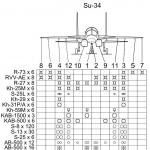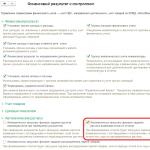The plight of farmers in Attica. Farmers of Attica lose land and freedom (grade 5). Sometimes they were carefully knocked down with sticks, immediately collecting

Lesson Plan
- 1.Athenian polis.
- 2.Occupations of residents of the Athenian polis.
- 3.Organization of power in Athens.
- 4. The situation of the masses.

New vocabulary words :
- Policy - a city-state with its own government, army and territory.
- Demos - ordinary people.
- Acropolis - the upper city, a high hill with steep slopes, at the same time a fortress and a sanctuary where temples stood.
- Agora - market Square.
- Amphora - a large clay vessel.
- Aristocracy - noble people.
- Tyrant - sole ruler.

Problematic question:

The emergence of policies
in Greece.
8th century BC e. - the emergence of a new writing system in Greece
(based on the Phoenician alphabet; for the first time letters began to represent vowel sounds)

1. Athenian polis :
IN Central Greece is the area Attica.
Northern Greece
Central Greece
Its main city was Athens.
Attica
Athens
The shores of Attica are indented with deep bays convenient for ships.

1. Athenian polis :
Remember when Mycenae was destroyed?
2 centuries later, cities appeared in Greece -
states(POLICIES).
During this time, the Greeks acquired iron and a new writing system was invented.

1. Athenian polis :
ATHENS became the new center of Greek civilization.
It consisted of the city itself and the nearby estates of large landowners.

There are no deep rivers or abundant springs in Attica .
The population took water from dug wells.
Most of the region is covered with mountains. Cereals do not grow well on its rocky soils .

:
In the 8th-7th centuries BC. e. Many workshops and shops of blacksmiths, potters, and shoemakers appeared on the streets of Athens.
The growing population of the city needed more and more bread, and there was not enough of it in Attica.

2. Activities of residents of the Athenian polis :
The farmers of Attica suffered from a lack of land and infertile soils, from frequent droughts that burned crops in the fields .
Growing olives, evergreen trees with curved trunks and silvery leaves, required a lot of work and care. Blue-black fruits grew on the trees - olives (we also call them olives). When harvesting, olives were plucked by hand.
The branches should not be shaken: fallen and crushed fruits dried out and spoiled.
Sometimes they were carefully knocked down with sticks and collected immediately.

2. Activities of residents of the Athenian polis :
The taste of olives is special, unlike anything else, the flesh is oily. They were eaten salted and soaked in vinegar.
The best varieties of golden olive oil were used for food, the worst were used for lighting.
The oil was poured into a clay or bronze lamp with a narrow spout into which a wick was inserted. The smoky flame barely dispersed the darkness.
Olive oil was used to lubricate burns and was included in medicines. The Greeks rubbed their bodies with it before wrestling, causing the skin to become slippery.

2. Activities of residents of the Athenian polis :
In Attica, on the hillsides, as elsewhere in Greece, grapes were grown in abundance.
Wine was made from its juice. The Greeks did not drink wine pure, but diluted it with water. Drunkenness was harshly condemned.

:
Power in Athens belonged to the nobility.
The common people, demos in Greek, did not participate in government.
On a hill dedicated to the god of war Ares, the council of the nobility, the Areopagus, met .
Areopagus:
- Every year he chose from among the noble and rich nine rulers - archons,
- judged the inhabitants of Attica.
However, the nobles did not judge according to the truth, but made decisions that were beneficial to themselves.

3. Organization of power in Athens :
- City rulers and judges.
Council of Nobles
Had all the power
People, we are not in control
participated.

4. The situation of the masses.
Land in Athens belonged to the nobility .
? Remember how people became slaves?
The main type of slavery in Athens was debt slavery.
Debtors were placed on the ground "debt stones."

4. The situation of the masses.
The best lands located in the valley were owned by noble people.
Simple farmers cultivated small and rocky plots on the mountain slopes. Every piece of bread was given to them by hard work
In a bad year, it was necessary to borrow grain or silver from a noble neighbor.
A debt stone was placed on the farmer's plot, and the poor man was immediately deprived of peace and sleep.
If he doesn’t repay the debt on time, they will take away his land... How can he continue to live without land? Involuntarily, he became a farm laborer for a rich man: in exchange for food, clothes and shoes, he plowed the field, crushed grapes, and picked olives.

4. The situation of the masses.
Or he continued to work on his former plot: but at the same time he kept only one-sixth of the harvest for himself, and gave the rest to its new owner for the use of the land.
It is not surprising that the landless poor man fell back into debt. And if such an unfortunate person could not repay the debt again, he was forced to give his wife, children, and even himself into slavery.
A noble slave owner could send a debtor slave to any work or sell him to a foreign land.

4. The situation of the masses.
The entire Athenian demos was dissatisfied with the dominance of the nobility.
At crowded gatherings, artisans, traders, and farmers called for overthrowing the power of the nobles and achieving the right to govern the state themselves.
Demos demanded the abolition of debt slavery and the redistribution of the land.

DEMOS
sought the right to govern the state himself
demanded the abolition of debt slavery and the redistribution of land

Problematic question:
- Why did Athens become one of the most powerful cities in Ancient Greece?


Don't forget to write down your homework!
1.Page 140-143, § 29,
2. Question 2 (written)
3. Learn vocabulary words (for dictation).

- Slide 5 - http://sschool8.narod.ru/79_Afina/7852r.jpg
- Slide 7 - http://www.sno.pro1.ru/all_for/kuzishchin/illustr/p148.jpg
- http://www.tury.ru/img.php?gid=277953&pid=1669800&v=n http://murzim.ru/uploads/posts/2010-10/1288549105_image009.jpg
- Slide 8 - http://ic.pics.livejournal.com/aldanov/11891766/1665271/original.jpg slide 10 - http://uch.znate.ru/tw_files2/urls_6/13/d-12010/img10.jpg
Slide 2
The region of Attica is located in Central Greece. Its main city was Athens. The shores of Attica are indented with deep bays convenient for ships. Northern Greece Central Greece Athens Attica 1. Territory of the Athenian polis.
Slide 3
In Attica there are neither deep rivers nor abundant springs. The population took water from dug wells. Most of the region is covered with mountains. Cereals do not grow well on its rocky soils.
Slide 4
In the 8th-7th centuries BC. e. Many workshops and shops of blacksmiths, potters, and shoemakers appeared on the streets of Athens. The growing population of the city needed more and more bread, and there was not enough of it in Attica.
Slide 5
2. Breeding olives and grapes. The farmers of Attica suffered from a lack of land and infertile soils, from frequent droughts that burned crops in the fields. Growing olives, evergreen trees with curved trunks and silvery leaves, required a lot of work and care. Blue-black fruits grew on the trees - olives (we also call them olives). When harvesting, olives were plucked by hand. The branches should not be shaken: fallen and crushed fruits dried out and spoiled. Sometimes they were carefully knocked down with sticks and collected immediately.
Slide 6
The oil was poured into a clay or bronze lamp with a narrow spout into which a wick was inserted. The smoky flame barely dispersed the darkness. The taste of olives is special, unlike anything else, the flesh is oily. They were eaten salted and soaked in vinegar. The best varieties of golden olive oil were used for food, the worst were used for lighting. Olive oil was used to lubricate burns and was included in medicines. The Greeks rubbed their bodies with it before wrestling, causing the skin to become slippery.
Slide 7
Wine was made from its juice. The Greeks did not drink wine pure, but diluted it with water. Drunkenness was harshly condemned. In Attica, on the hillsides, as elsewhere in Greece, grapes were grown in abundance.
Slide 8
3. Nobility and demos in the Athenian polis. However, the nobles did not judge according to the truth, but made decisions that were beneficial to themselves. Power in Athens belonged to the nobility. The common people, demos in Greek, did not participate in government. On a hill dedicated to the god of war Ares, the council of the nobility, the Areopagus, met. Areopagus: Every year he chose nine rulers - archons - from among the noble and rich, and judged the inhabitants of Attica.
Slide 9
4. The plight of farmers. The best lands located in the valley were owned by noble people. Simple farmers cultivated small and rocky plots on the mountain slopes. Every piece of bread was given to them through hard work. If he does not repay the debt on time, they will take away his plot... How can they continue to live without land? Involuntarily, he became a farm laborer for a rich man: in exchange for food, clothes and shoes, he plowed the field, crushed grapes, and picked olives. In a bad year, it was necessary to borrow grain or silver from a noble neighbor. A debt stone was placed on the farmer's plot, and the poor man was immediately deprived of peace and sleep.
Slide 10
A noble slave owner could send a debtor slave to any work or sell him to a foreign land. Or he continued to work on his former plot: but at the same time he kept only one-sixth of the harvest for himself, and gave the rest to its new owner for the use of the land. It is not surprising that the landless poor man fell back into debt. And if such an unfortunate person could not repay the debt again, he was forced to give his wife, children, and even himself into slavery.
Slide 11
Demos demanded the abolition of debt slavery and the redistribution of the land. The entire Athenian demos was dissatisfied with the dominance of the nobility. At crowded gatherings, artisans, traders, and farmers called for overthrowing the power of the nobles and achieving the right to govern the state themselves.
View all slides
8th century BC e. – the emergence of a new writing system in Greece (based on the Phoenician alphabet; for the first time, letters began to denote vowel sounds)
The emergence of policies in Greece.
Northern Greece
Central Greece
Attica
Athens
POLIS - city-state
In Attica there are neither deep rivers nor abundant springs.
Most of the region is covered with mountains. Cereals do not grow well on its rocky soils.
Ancient Attica and the occupations of its population.
In the 8th-7th centuries BC. e. Many workshops and shops of blacksmiths, potters, and shoemakers appeared on the streets of Athens.
The growing population of the city needed more and more bread, and there was not enough of it in Attica.
The farmers of Attica suffered from a lack of land and infertile soils, from frequent droughts that burned crops in the fields.
The plight of the farmers of Attica.
Power in Athens belonged to the nobility.
DEMOS - ordinary people, did not participate in the management of the policy.
Areopagus - council of the nobility
annually elected archons
judged the inhabitants of Attica
ARCHONS – rulers of the polis, judges (9 people)
demanded the abolition of debt slavery and the redistribution of land
sought the right to govern the state himself
DEMOS
On the topic: methodological developments, presentations and notes
Topic: Farmers of Attica are losing land and freedom.
Mastering the historical picture of the world: the ability to explain modern world, connecting historical facts and concepts into a holistic picture. Formation of open history...
The purpose of the lesson: 1) To bring students to an understanding of the reasons for the emergence of Greek policies, to introduce the occupations of the population, the management of Attica, the situation of farmers. 2) Continue the formation ...
Possibilities of a school history lesson in the implementation of the UUD development program in LLC using the example of a history lesson in 5th grade: Farmers of Attica are losing land and freedom.
History teacher of MBOU "Topkanovskaya secondary school" Yatskina Galina Vasilievna. Lesson topic: Farmers of Attica are losing land and freedom. Textbook: Vigasin A.A., Goder G.I., Sventsitskaya I.S. General history...

- Ancient Attica and its population
- Growing olives and grapes
- Nobles and demos in the Athenian polis
- The plight of farmers

- Why were the positions of the demos and the nobility so different?
- Were the laws of Archon Dracon fair?

The emergence of policies
in Greece.
In the VIII-VII centuries. BC e. The Greeks inhabited the southern part of the Balkan Peninsula, the islands of the Aegean Sea and the western coast of Asia Minor. There was no single state; independent states were formed on each island, with their own rulers, troops, and laws.

The emergence of policies in Greece.
city-state
Working with the text of paragraph 1 § 29, describe the territory of Attica with a map.
Northern Greece
Central Greece
Attica
Athens

ATHENS
- The Greeks had a myth explaining the origin of the name of the city of Athens.
We can get acquainted with him on page 142 of the textbook.


Olive farming
Vineyard
Fishing
Cattle breeding
Agriculture
ACTIVITIES OF ATTICA RESIDENTS

Ancient Attica and the occupations of its population.
In Attica there are neither deep rivers nor abundant springs.
Most of the region is covered with mountains. On her rocky
grains grow poorly in soils.

In the 8th-7th centuries BC. e. Many workshops and shops of blacksmiths, potters, and shoemakers appeared on the streets of Athens.
The growing population of the city needed more and more bread, and there was not enough of it in Attica.

The farmers of Attica suffered from
land shortage and infertile soils, from
frequent droughts that burned crops in the fields.

The plight of the farmers of Attica.
Power in Athens belonged to the nobility.
DEMOS – ordinary people did not participate in the management of the policy.
AREOPAGUS – council of the nobility
annually elected archons
judged the inhabitants of Attica
ARCHONS – rulers of the policy, judges (9 people)

DEMOS
sought the right to govern the state himself
demanded the abolition of debt slavery and the redistribution of land
Slide 1
* Chapter 8. Polis of Greece and their fight against the Persian invasion Topic: Farmers of Attica are losing land and freedom (§ 29) D/z: § 29, questions, summary. Purpose of the lesson: to consider the system of life in the Attica region, where the famous city of Athens was located. Establish the main reason why the Greeks fell into debt slavery.Slide 2
 Remember when Mycenae was destroyed? 2 centuries later (name the century) the following appeared in Greece: - POLICIES - city-states (city + adjacent territory); - iron; new writing (borrowed from the Phoenicians + vowels). 1. Athenian polis The new center of Greek civilization was the city-polis of ATHENS (Attica region). The main area of any policy is AGORA.
Remember when Mycenae was destroyed? 2 centuries later (name the century) the following appeared in Greece: - POLICIES - city-states (city + adjacent territory); - iron; new writing (borrowed from the Phoenicians + vowels). 1. Athenian polis The new center of Greek civilization was the city-polis of ATHENS (Attica region). The main area of any policy is AGORA.
Slide 3
 Page 115 Find: Central Greece region Attica city of Athens. There are no deep rivers, rocky soils, dry summers. - Draw a conclusion. What activities can become the main ones under such conditions?
Page 115 Find: Central Greece region Attica city of Athens. There are no deep rivers, rocky soils, dry summers. - Draw a conclusion. What activities can become the main ones under such conditions?
Slide 4
 Grape press The following grew well (unlike cereal crops): olives - eaten fresh, pickled, oil made (for food, for lighting) grapes - grape wine was very famous. Read the myth “The dispute between Athena and Poseidon” page 142. 2. Occupations of the inhabitants of the Athenian polis: agriculture
Grape press The following grew well (unlike cereal crops): olives - eaten fresh, pickled, oil made (for food, for lighting) grapes - grape wine was very famous. Read the myth “The dispute between Athena and Poseidon” page 142. 2. Occupations of the inhabitants of the Athenian polis: agriculture
Slide 5
 Many residents of Athens were excellent artisans. Athenian amphorae were famous throughout Greece. - Describe the work of the ancient Greek potter? Craft, trade 7th century. BC e. – coins appear: main – smallest drachma – largest mite – talent (≈ 26 kg).
Many residents of Athens were excellent artisans. Athenian amphorae were famous throughout Greece. - Describe the work of the ancient Greek potter? Craft, trade 7th century. BC e. – coins appear: main – smallest drachma – largest mite – talent (≈ 26 kg).
Slide 6
 A government body of 9 people: priest, commander, head of state, 6 judges (sat on the hill of Ares) members of the Areopagus - ARCHONS DEMOS (people) - elected rulers, but did not participate in governance. POPULATION 3. Organization of power in Athens in the 7th century. BC. AREOPAGUS KNOW - had all the power. Conclusion: power and land in Athens belonged to the nobility.
A government body of 9 people: priest, commander, head of state, 6 judges (sat on the hill of Ares) members of the Areopagus - ARCHONS DEMOS (people) - elected rulers, but did not participate in governance. POPULATION 3. Organization of power in Athens in the 7th century. BC. AREOPAGUS KNOW - had all the power. Conclusion: power and land in Athens belonged to the nobility.
Slide 7
 - Remember how people became slaves (types of slavery)? The main type of slavery in Athens was debt slavery. - Give a definition this species slavery. If a farmer borrowed money, a “debt stone” was placed on his land. If he did not repay the debt on time, he became a slave. Demos was dissatisfied with such orders and demanded the abolition of debt slavery and a fair division of the land. 4. The plight of the masses Read “Dragon's Laws” p. 141 Debt Stone
- Remember how people became slaves (types of slavery)? The main type of slavery in Athens was debt slavery. - Give a definition this species slavery. If a farmer borrowed money, a “debt stone” was placed on his land. If he did not repay the debt on time, he became a slave. Demos was dissatisfied with such orders and demanded the abolition of debt slavery and a fair division of the land. 4. The plight of the masses Read “Dragon's Laws” p. 141 Debt Stone
Slide 8
 Consolidation of the material covered What was the name of the small independent state in ancient Greece? In what area was the Athenian polis located? Who are the archons, the Areopagus, and the demos? What did the stone placed on the site by the authorities mean for the inhabitants of the Athenian polis? What did he warn about? What demands did the Athenian people make? What does the expression “Draconian (Tovian) laws mean?”
Consolidation of the material covered What was the name of the small independent state in ancient Greece? In what area was the Athenian polis located? Who are the archons, the Areopagus, and the demos? What did the stone placed on the site by the authorities mean for the inhabitants of the Athenian polis? What did he warn about? What demands did the Athenian people make? What does the expression “Draconian (Tovian) laws mean?”





